Accounting for Value in Marxs Capital
Heterodox Studies in the Critique of Political Economy
Series Editor: Andrew Kliman
The outbreak of the global economic crisis in 2007 has led to renewed discussion of heterodox economics and Karl Marxs contributions. Heterodox Studies in the Critique of Political Economy contributes to and seeks to broaden the focus of these discussions. It welcomes proposals from authors working within various heterodox traditions. Contributions to the critique of political economy in the tradition founded by Marx are strongly encouraged, as are other marginalized voices and perspectives. Thus, nonacademics, scholars from Asia and the global South, and proponents of perspectives that are underrepresented in the existing academic heterodox literature are encouraged to submit proposals. Both single-authored works and edited collections are welcome.
Advisory Board
Alan Freeman, London Metropolitan University.
Seongjin Jeong, Gyeongsang National University.
Nick Potts, Southampton Solent University.
Recent Titles in This Series
Is Marx s Theory of Profit Right ?: The Simultaneist - Temporalist Debate , Edited by Andrew Kliman and Nick Potts.
Accounting for Value in Marx s Capital : The Invisible Hand , by Rob Bryer.
Accounting for Value in Marxs Capital
The Invisible Hand
Rob Bryer
LEXINGTON BOOKS
Lanham Boulder New York London
Published by Lexington Books
An imprint of The Rowman & Littlefield Publishing Group, Inc.
4501 Forbes Boulevard, Suite 200, Lanham, Maryland 20706
www.rowman.com
Unit A, Whitacre Mews, 26-34 Stannary Street, London SE11 4AB
Copyright 2017 by Lexington Books
All rights reserved . No part of this book may be reproduced in any form or by any electronic or mechanical means, including information storage and retrieval systems, without written permission from the publisher, except by a reviewer who may quote passages in a review.
British Library Cataloguing in Publication Information Available
Library of Congress Cataloging-in-Publication Data
Includes bibliographic references and index.
ISBN: 978-1-4985-3606-6 (cloth : alk. paper)
ISBN: 978-1-4985-3607-3 (electronic)
 The paper used in this publication meets the minimum requirements of American National Standard for Information SciencesPermanence of Paper for Printed Library Materials, ANSI/NISO Z39.48-1992.
The paper used in this publication meets the minimum requirements of American National Standard for Information SciencesPermanence of Paper for Printed Library Materials, ANSI/NISO Z39.48-1992.
Printed in the United States of America
Contents
My thanks to Andrew Kliman for making this book possible, through his work on the TSSI, his invitation to explore Marx and accounting, and his editorial guidance; and my thanks to him and Alan Freeman for helpful comments on early drafts.
Special thanks are due to Vin Bryer and Roger Hulme, my intellectual partners, sine qua non .
I thank New Left Review for permission to quote from Karl Marx, Grundriss e , and the three volumes of Capital , and Lawrence and Wishart for permission to quote from Karl Marx, Theories of Surplus Value , and from the volumes of Karl Marx and Frederick Engels: Collected Works .
FIGURES
TABLES
CMA | capital maintenance adjustment |
DEB | double-entry bookkeeping |
FASB | Financial Accounting Standards Board |
GAAP | generally accepted accounting principles |
IAS | International Accounting Standard |
IASB | International Accounting Standards Board |
ICAEW | Institute of Chartered Accountants in England and Wales |
IFRS | International Financial Reporting Standard |
LTFRP | Law of the Tendential Fall in the Rate of Profit |
MELT | monetary expression of labor time |
MOC | means of circulation |
MOP | means of production |
MOS | means of subsistence |
NI | new interpretation |
PV | present value |
RCA | replacement cost accounting |
RCI | replacement cost interpretation |
ROCE | return on capital employed |
ROI | return on investment |
SSSI | simultaneous single-system interpretation |
TSSI | temporal single-system interpretation |
In 1845, Marx made clear his revolutionary intent in his Theses on Feuerbach , which concluded, The philosophers have only interpreted the world in various ways; the point is to change it (1976b, 5). By 1864 he was confident his work on political economy, Capital , would ... deal a theoretical blow to the bourgeoisie from which it will never recover (Marx and Engels 1987, 4). At Marxs funeral in 1883, Engels extolled his two outstanding contributions as a man of science (1989, 468). First, Just as Darwin discovered the law of development of organic nature, Marx discovered the law of development of human history (Engels 1989, 467). Second, he discovered the special law of motion governing the present-day capitalist mode of production, his theory of surplus value (Engels 1989, 46768). Today, many Marxists think that Marxs theories of history and value are internally inconsistent, if not incoherent, and largely irrelevant.
From the early 1980s, there arose a growing clamour ... to drop the concept of value altogether, which many Marxists accepted may be justified when applied to that interpretation of value as a pure accounting concept (Harvey 2006, 36). They agreed, the idea of value as an accounting tool or as an empirically observable magnitude plainly had to be abandoned (Harvey 2006, 36), often arguing defensively that Marx did not try to explain prices and rates of profit, but propounded only a qualitative social theory of capitalist exploitation (Elson 1979; Harvey 2006, 36; Callinicos 1983, 126). Some, however, continued searching for proof that his theory of value has the logic, quantitative rigor, and practical relevance Marx claimed, which has produced three competing interpretations: the New Interpretation (NI), the Simultaneous Single-System Interpretation (SSSI), and the Temporal Single-System Interpretation (TSSI).
Most find it deeply flawed (Giddens 1995, xiv). Very few venture to defend it (Wright et al. 1992; Cohen 2000).
Many books and articles discuss Marxs Capital from many perspectives, but this book uniquely advances and defends an accounting interpretation of his theory of value, that he used it to explain the principles and practices underlying capitalists accounts. It confirms and builds on the TSSIs refutation of the long-standing charge that Marxs illustration of the transformation from values to prices in Volume 3 of Capital is inconsistent, which undermines his theory of value, but it rejects the NI and the SSSI by showing that only a temporal, single-system interpretation is consistent with Marxs accounting. A companion volume, Accounting for History in Marx s Capital : The Missing Link (Bryer 2017) rejects the criticism that Marxs theory of history relies on economic determinism, and defends its evolutionism and functionalism.
Marx became seriously interested in accounts from the late 1850s, during an important period in the development of his critique of political economy, asking Engels for information and explanations. Examining their letters in the context of Marxs evolving work, the book argues, supports the hypothesis that discovering he could explain capitalists accounts with his theory of value gave him the breakthrough he needed to decide how to present his work, and explains why in December 1862 he changed its title to Capital .
Next page
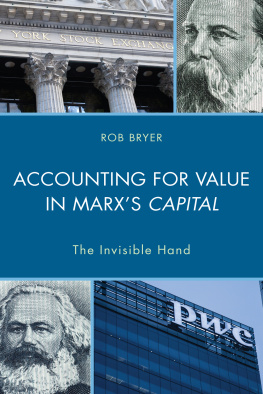
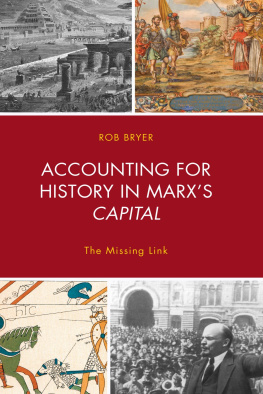
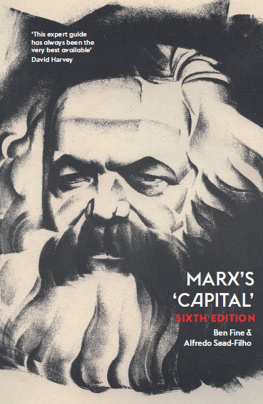

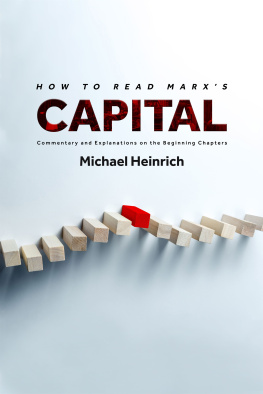

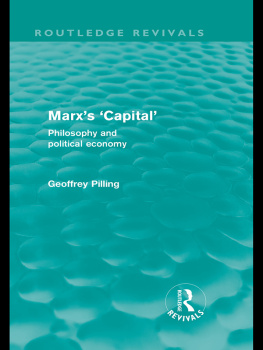
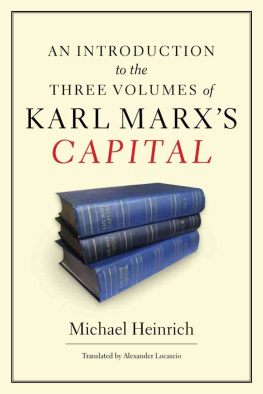

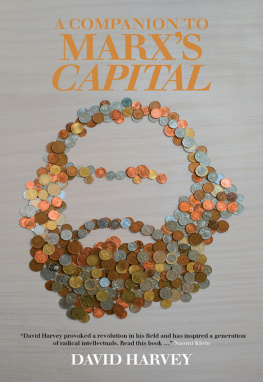
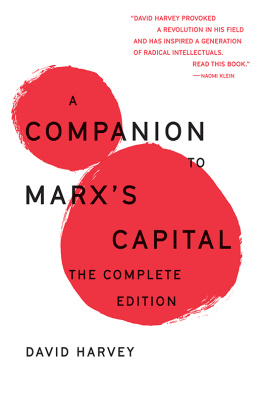
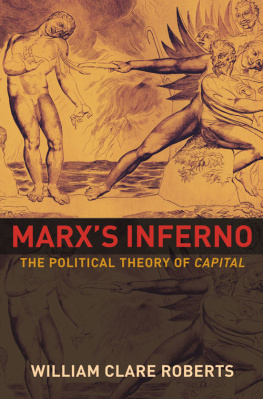
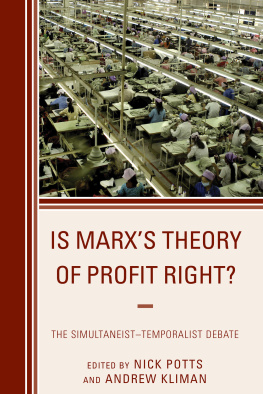
 The paper used in this publication meets the minimum requirements of American National Standard for Information SciencesPermanence of Paper for Printed Library Materials, ANSI/NISO Z39.48-1992.
The paper used in this publication meets the minimum requirements of American National Standard for Information SciencesPermanence of Paper for Printed Library Materials, ANSI/NISO Z39.48-1992.